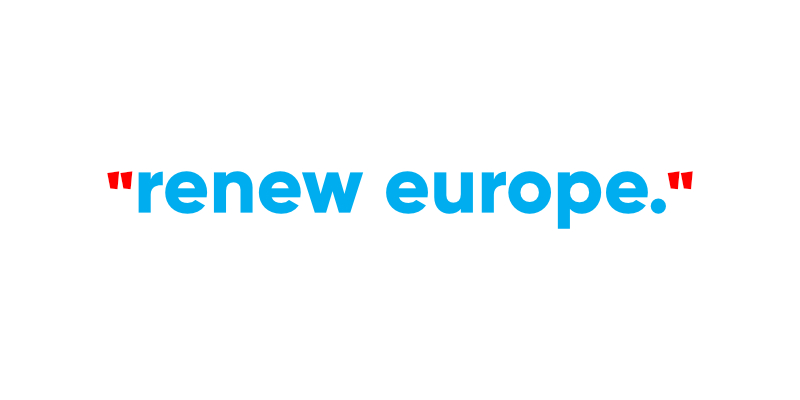The Deception of Renew Europe: A Threat to National Sovereignty

The European political landscape is often presented as a collection of diverse parties, each representing different ideologies and national interests. However, the reality is far more concerning. Many parties across EU member states, despite appearing distinct, are in fact part of the same political coalition: Renew Europe. This alliance, rather than fostering true democratic plurality, serves as a vehicle for increasing EU control at the expense of national sovereignty. Beneath its noble-sounding name, Renew Europe is working to dismantle independent nation-states and consolidate power under the European Union, to the detriment of citizens across the continent (Vollaard, 2018).
The Illusion of Political Diversity
Parties That Appear Different But Are Essentially the Same
A major deception in EU politics is the illusion of choice. In the Netherlands, for example, parties like D66 and VVD present themselves as distinct, often campaigning with seemingly opposing rhetoric. Yet, both belong to Renew Europe and share the same overarching agenda: increased European integration, centralization of power in Brussels, and a disregard for national sovereignty (Peeperkorn, 2020). While D66 portrays itself as progressive and VVD as center-right, their policies on crucial matters like immigration, EU expansion, and economic control are nearly identical.
This is not unique to the Netherlands. In France, both La République En Marche (LREM) and the Democratic Movement (MoDem) are members of Renew Europe and push for deeper EU federalism (Gomart, 2019). In Germany, the Free Democratic Party (FDP) aligns with Renew Europe, supporting policies that erode national decision-making in favor of Brussels’ directives (Hix & Hagemann, 2009).
Renew Europe: Not as Noble as It Sounds
The name Renew Europe suggests modernization, progress, and reform, yet its true objective is the erosion of national sovereignty. Under the guise of cooperation, the coalition advances policies that strip individual member states of their ability to self-govern, increasing the power of unelected EU bureaucrats (Schmidt, 2021). This aligns closely with the longstanding goal of turning the EU into a supranational entity where national parliaments are little more than administrative offices carrying out Brussels’ mandates.
The coalition consistently supports measures such as:
- Increased EU taxation powers – reducing national governments’ financial autonomy.
- Harmonized immigration policies – overriding national preferences for border control.
- EU-wide regulations that undermine local industries in favor of multinational corporations tied to the EU bureaucracy.
- Censorship policies – using regulations on ‘disinformation’ to suppress dissenting views on EU policies (Hollanders & Vandenbroucke, 2022).
The Consequences for EU Citizens
The Disempowerment of Voters
One of the fundamental problems with Renew Europe is that it dilutes the democratic process. Citizens may believe they are voting for different parties that represent distinct ideologies, but in reality, these parties serve the same European federalist agenda. This deception leads to a lack of true representation, as voters are unknowingly supporting policies that may contradict their national interests (Mudde, 2019).
Economic and Social Consequences
The policies promoted by Renew Europe often benefit large multinational corporations and financial institutions at the expense of local economies. The push for uniform regulations across the EU disadvantages small and medium-sized enterprises, which struggle to comply with bureaucratic hurdles designed for multinational giants (Mair, 2013). Additionally, mass immigration policies championed by Renew Europe strain social services and drive down wages in many member states, disproportionately affecting lower-income citizens (Goodwin & Heath, 2016).
Other Western European Examples
- Spain: Ciudadanos, once a national-oriented party, is now a staunch advocate for European integration as part of Renew Europe (Fernández-Albertos, 2015).
- Italy: Italia Viva, led by Matteo Renzi, aligns with Renew Europe despite Italy’s growing Euroscepticism (Tarchi, 2020).
- Belgium: Open VLD, once considered a champion of national interests, now consistently pushes EU-first policies (de Waele & Vieira, 2010).
Conclusion: A Call for Transparency and National Self-Determination
The presence of Renew Europe across multiple national parties is not just a matter of political alliance; it is a strategy to consolidate EU control by misleading voters into believing they have a genuine choice. National sovereignty is being systematically undermined, and citizens across the continent must be aware of this reality. Without transparency and resistance to these deceptive practices, Europe risks becoming a bureaucratic empire where nations exist only in name, with true power resting in Brussels.
References
- de Waele, J., & Vieira, A. (2010). Party Politics and European Integration.
- Fernández-Albertos, J. (2015). National Parties and European Institutions: The Case of Spain.
- Gomart, T. (2019). France and the European Project.
- Goodwin, M., & Heath, O. (2016). The Rise of Euroscepticism.
- Hix, S., & Hagemann, S. (2009). The Party System in the European Parliament.
- Hollanders, D., & Vandenbroucke, F. (2022). EU Policies and National Consequences.
- Mair, P. (2013). Ruling the Void: The Hollowing of Western Democracy.
- Mudde, C. (2019). The Far Right and the European Union.
- Peeperkorn, M. (2020). D66, VVD, and the Illusion of Choice.
- Schmidt, V. (2021). Democracy in Europe: The EU’s Growing Power.
- Tarchi, M. (2020). Italy and the European Federalist Agenda.
- Vollaard, H. (2018). The European Union and National Sovereignty.


















